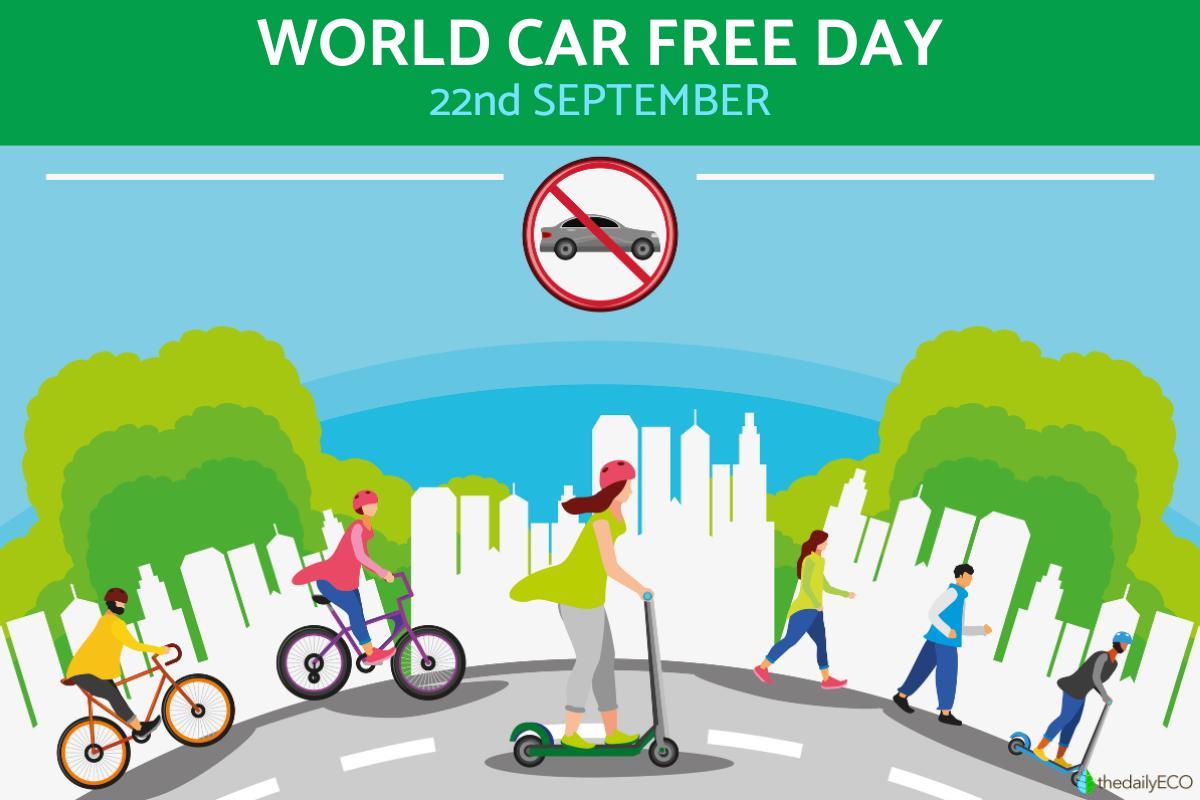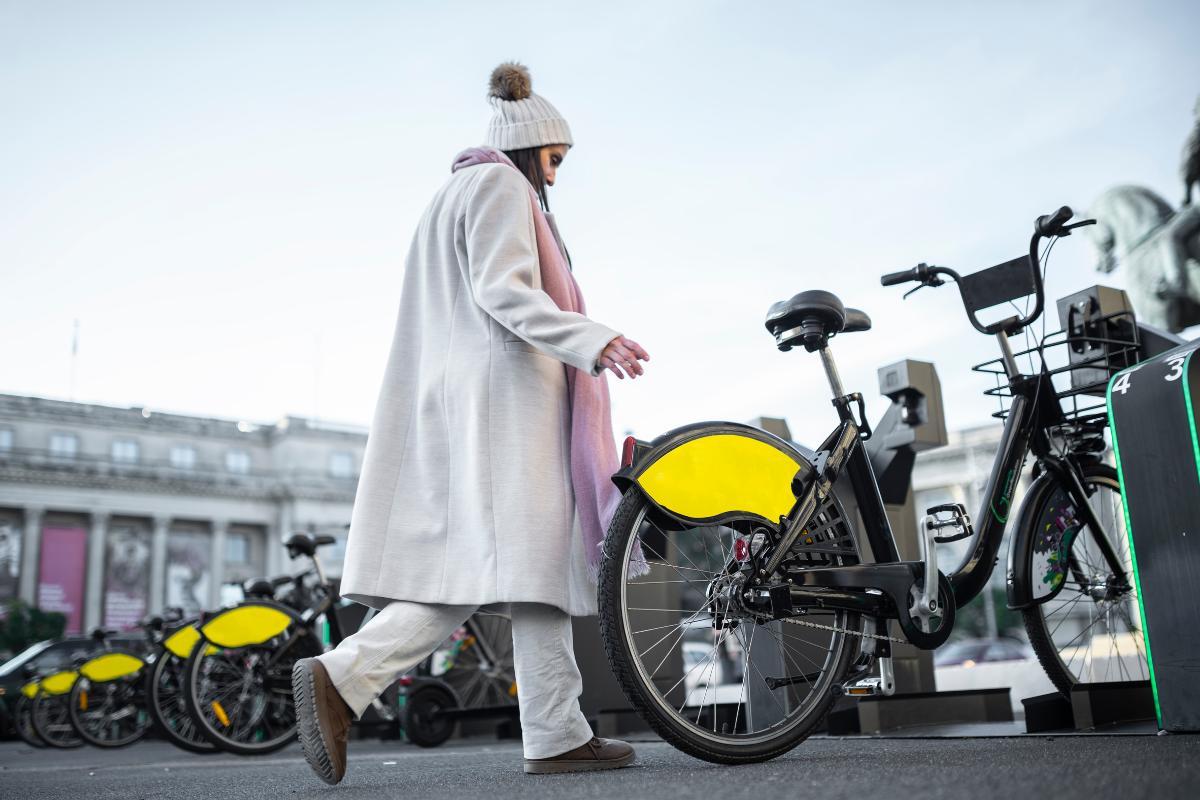When Is World Car-Free Day?


World Car Free Day is celebrated on the 22nd September as part of a global movement that promotes sustainable mobility and the reduction of the use of private cars. This day aims to reduce the environmental impact produced by these means of transport. In turn, the hops is not only to improve people's quality of life, but to raise serious issues about how transportation influences climate change. At thedailyECO, we learn a lot more about international no-car day by asking when is World Car Free Day?
When is World Car Free Day?
World Car Free Day is celebrated every 22nd September as part of a global movement that promotes sustainable mobility, a growing priority on the agenda of governments to change public policy and the reduction of the use of private cars.
The date for World Car Free Day coincides with Sustainable Mobility Week which takes place from 16th to 22nd September. It aims to raise awareness and encourage the use of more environmentally friendly means of transport such as walking, cycling and using public transport. These alternative means improve the use and appreciation of public spaces by citizens.

Why is World Car Free Day celebrated?
The formal celebration of World Car Free Day began in the 1990s in several European cities. Its roots date back even further to the oil crisis of the 1970s. During this crisis, the shortage of fossil fuels prompted the search for alternatives and led to questions about the widespread use of cars.
One of the main reasons for celebrating World Car Free Day is the need to reduce the negative environmental impact that cars have on the planet and promote more active and healthy lifestyles. As car use has proliferated, almost three out of four regular journeys are made by motor vehicle. Private cars generate a large amount of greenhouse gas (GHG) emissions, one of the main factors contributing to global warming and climate change.
Furthermore, the massive use of cars brings with it problems such as traffic congestion, increased noise pollution, decreased air quality and an increase in traffic accidents. In various cities across the world, the number of motor vehicles circulating in regular exposes their inhabitants to levels of environmental pollution that exceed those recommended by the World Health Organization (WHO).
No less important, this day also seeks to improve people's quality of life. High volume of motor vehicle traffic not only contributes to human health increasing stress, raising blood pressure and influencing the contraction of cardiovascular diseases. Not using your car can improve our physical well-being, but also reduce the risk of road accidents. Although there is a slight reduction due to improved safety measures, traffic accidents remain the leading cause of death for persons aged 5-29.
Not using your car one day out of the year will not provide the changes this world needs to reduce pollution and positively influence climate change. However, celebrating World Car Free Day can highlight the causes of these problems and influence us to make these changes on a personal and global level.
Discover when is World Water Day celebrated with our related guide.

How to participate in World Car Free Day
Participating in World Car Free Day is an active way to support sustainable mobility and reduce your personal carbon footprint. Here are some ways to practical ways you can get involve:
- Use public transport: public transport is much more efficient than a private car in terms of energy consumption, greenhouse gas emissions and reduced traffic congestion. By opting for buses, trains, subways or trams instead of using a private car, the number of vehicles in circulation decreases. This significantly reduces polluting emissions and alleviates road congestion.
- Cycle or walk: these options have benefits for both the environment and individual human health. Walking and cycling are active forms of transport that help improve physical fitness, reduce cardiovascular disease, reduce stress and increase general well-being. They also contribute to creating quieter urban environments that are less congested, less noisy and have better air quality.
- Carpooling: if for some reason you absolutely must use a car, sharing it with other people is a way to optimize its use and reduce the total number of vehicles in circulation. This saves resources and reduces emissions.
- Reflect on your transportation habits: this day is a great opportunity to think about how you could integrate more sustainable mobility habits into your daily life. This can include choosing to cycle for short distances to planning walking routes for exercise.
- Participate in training courses: in many countries, there are training courses that provide concepts and tools related to this day. An example of this are training courses on responsible bicycle use or those related to sustainable mobility or urban planning.
- Spread the word: raising awareness about the importance of World Car Free Day can have a positive impact. Share information on social media, organize or participate in local events related to the day and talk to friends and family about the benefits of reducing car use and adopting sustainable transportation alternatives.
Now that you know when is World Car Free Day, you can help make other improvements to our global communities by finding out when is World Otter Day and when is World Turtle Day?
If you want to read similar articles to When Is World Car-Free Day?, we recommend you visit our Sustainability and sustainable development category.
- Recasens Alsina, M. (2020). Challenges for sustainable mobility: Barcelona. City and territory, territorial studies, 52(204), 263-276.
https://doi.org/10.37230/CyTET.2020.204.05 - Silvente Ortega, A. (2006). Bicycle and sustainable mobility. Eubacteria, No. 17. https://www.um.es/eubacteria/eubacteria2/bicicleta.pdf







